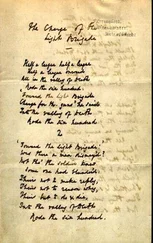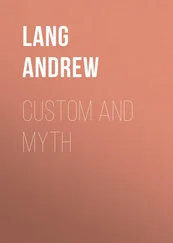Andrew Lang - Alfred Tennyson
Здесь есть возможность читать онлайн «Andrew Lang - Alfred Tennyson» — ознакомительный отрывок электронной книги совершенно бесплатно, а после прочтения отрывка купить полную версию. В некоторых случаях можно слушать аудио, скачать через торрент в формате fb2 и присутствует краткое содержание. Жанр: foreign_antique, foreign_prose, на английском языке. Описание произведения, (предисловие) а так же отзывы посетителей доступны на портале библиотеки ЛибКат.
- Название:Alfred Tennyson
- Автор:
- Жанр:
- Год:неизвестен
- ISBN:нет данных
- Рейтинг книги:5 / 5. Голосов: 1
-
Избранное:Добавить в избранное
- Отзывы:
-
Ваша оценка:
- 100
- 1
- 2
- 3
- 4
- 5
Alfred Tennyson: краткое содержание, описание и аннотация
Предлагаем к чтению аннотацию, описание, краткое содержание или предисловие (зависит от того, что написал сам автор книги «Alfred Tennyson»). Если вы не нашли необходимую информацию о книге — напишите в комментариях, мы постараемся отыскать её.
Alfred Tennyson — читать онлайн ознакомительный отрывок
Ниже представлен текст книги, разбитый по страницам. Система сохранения места последней прочитанной страницы, позволяет с удобством читать онлайн бесплатно книгу «Alfred Tennyson», без необходимости каждый раз заново искать на чём Вы остановились. Поставьте закладку, и сможете в любой момент перейти на страницу, на которой закончили чтение.
Интервал:
Закладка:
IV.
1842–848 – THE PRINCESS
The Poems, and such criticisms as those of Spedding and Sterling, gave Tennyson his place. All the world of letters heard of him. Dean Bradley tells us how he took Oxford by storm in the days of the undergraduateship of Clough and Matthew Arnold. Probably both of these young writers did not share the undergraduate enthusiasm. Mr Arnold, we know, did not reckon Tennyson un esprit puissant . Like Wordsworth (who thought Tennyson “decidedly the first of our living poets… he has expressed in the strongest terms his gratitude to my writings”), Arnold was no fervent admirer of his contemporaries. Besides, if Tennyson’s work is “a criticism of Life,” the moral criticism, so far, was hidden in flowers, like the sword of Aristogiton at the feast. But, on the whole, Tennyson had won the young men who cared for poetry, though Sir Robert Peel had never heard of him: and to win the young, as Theocritus desired to do, is more than half the battle. On September 8, 1842, the poet was able to tell Mr Lushington that “500 of my books are sold; according to Moxon’s brother, I have made a sensation.” The sales were not like those of Childe Harold or Marmion ; but for some twenty years new poetry had not sold at all. Novels had come in about 1814, and few wanted or bought recent verse. But Carlyle was converted. He spoke no more of a spoiled guardsman. “If you knew what my relation has been to the thing called ‘English Poetry’ for many years back, you would think such a fact” (his pleasure in the book) “surprising.” Carlyle had been living (as Mrs Carlyle too well knew) in Oliver Cromwell, a hero who probably took no delight in Lycidas or Comus , in Lovelace or Carew. “I would give all my poetry to have made one song like that,” said Tennyson of Lovelace’s Althea . But Noll would have disregarded them all alike, and Carlyle was full of the spirit of the Protector. To conquer him was indeed a victory for Tennyson; while Dickens, not a reading man, expressed his “earnest and sincere homage.”
But Tennyson was not successful in the modern way. Nobody “interviewed” him. His photograph, of course, with disquisitions on his pipes and slippers, did not adorn the literary press. His literary income was not magnified by penny-a-liners. He did not become a lion; he never would roar and shake his mane in drawing-rooms. Lockhart held that Society was the most agreeable form of the stage: the dresses and actresses incomparably the prettiest. But Tennyson liked Society no better than did General Gordon. He had friends enough, and no desire for new acquaintances. Indeed, his fortune was shattered at this time by a strange investment in wood-carving by machinery. Ruskin had only just begun to write, and wood-carving by machinery was still deemed an enterprise at once philanthropic and æsthetic. “My father’s worldly goods were all gone,” says Lord Tennyson. The poet’s health suffered extremely: he tried a fashionable “cure” at Cheltenham, where he saw miracles of healing, but underwent none. In September 1845 Peel was moved by Lord Houghton to recommend the poet for a pension (£200 annually). “I have done nothing slavish to get it: I never even solicited for it either by myself or others.” Like Dr Johnson, he honourably accepted what was offered in honour. For some reason many persons who write in the press are always maddened when such good fortune, however small, however well merited, falls to a brother in letters. They, of course, were “causelessly bitter.” “Let them rave!”
If few of the rewards of literary success arrived, the penalties at once began, and only ceased with the poet’s existence. “If you only knew what a nuisance these volumes of verse are! Rascals send me theirs per post from America, and I have more than once been knocked up out of bed to pay three or four shillings for books of which I can’t get through one page, for of all books the most insipid reading is second-rate verse.”
Would that versifiers took the warning! Tennyson had not sent his little firstlings to Coleridge and Wordsworth: they are only the hopeless rhymers who bombard men of letters with their lyrics and tragedies.
Mr Browning was a sufferer. To one young twitterer he replied in the usual way. The bard wrote acknowledging the letter, but asking for a definite criticism. “I do not think myself a Shakespeare or a Milton, but I know I am better than Mr Coventry Patmore or Mr Austin Dobson.” Mr Browning tried to procrastinate: he was already deeply engaged with earlier arrivals of volumes of song. The poet was hurt, not angry; he had expected other things from Mr Browning: he ought to know his duty to youth. At the intercession of a relation Mr Browning now did his best, and the minstrel, satisfied at last, repeated his conviction of his superiority to the authors of The Angel in the House and Beau Brocade . Probably no man, not even Mr Gladstone, ever suffered so much from minstrels as Tennyson. He did not suffer them gladly.
In 1846 the Poems reached their fourth edition. Sir Edward Bulwer Lytton (bitten by what fly who knows?) attacked Tennyson in The New Timon , a forgotten satire. We do not understand the ways of that generation. The cheap and spiteful genre of satire, its forged morality, its sham indignation, its appeal to the ape-like passions, has gone out. Lytton had suffered many things (not in verse) from Jeames Yellowplush: I do not know that he hit back at Thackeray, but he “passed it on” to Thackeray’s old college companion. Tennyson, for once, replied (in Punch : the verses were sent thither by John Forster); the answer was one of magnificent contempt. But he soon decided that
“The noblest answer unto such
Is perfect stillness when they brawl.”
Long afterwards the poet dedicated a work to the son of Lord Lytton. He replied to no more satirists. 5 5 The author of the spiteful letters was an unpublished anonymous person.
Our difficulty, of course, is to conceive such an attack coming from a man of Lytton’s position and genius. He was no hungry hack, and could, and did, do infinitely better things than “stand in a false following” of Pope. Probably Lytton had a false idea that Tennyson was a rich man, a branch of his family being affluent, and so resented the little pension. The poet was so far from rich in 1846, and even after the publication of The Princess , that his marriage had still to be deferred for four years.
On reading The Princess afresh one is impressed, despite old familiarity, with the extraordinary influence of its beauty. Here are, indeed, the best words best placed, and that curious felicity of style which makes every line a marvel, and an eternal possession. It is as if Tennyson had taken the advice which Keats gave to Shelley, “Load every rift with ore.” To choose but one or two examples, how the purest and freshest impression of nature is re-created in mind and memory by the picture of Melissa with
“All her thoughts as fair within her eyes,
As bottom agates seen to wave and float
In crystal currents of clear morning seas.”
The lyric, “Tears, idle tears,” is far beyond praise: once read it seems like a thing that has always existed in the world of poetic archetypes, and has now been not so much composed as discovered and revealed. The many pictures and similitudes in The Princess have a magical gorgeousness: —
“From the illumined hall
Long lanes of splendour slanted o’er a press
Of snowy shoulders, thick as herded ewes,
And rainbow robes, and gems and gem-like eyes,
And gold and golden heads; they to and fro
Fluctuated, as flowers in storm, some red, some pale.”
Интервал:
Закладка:
Похожие книги на «Alfred Tennyson»
Представляем Вашему вниманию похожие книги на «Alfred Tennyson» списком для выбора. Мы отобрали схожую по названию и смыслу литературу в надежде предоставить читателям больше вариантов отыскать новые, интересные, ещё непрочитанные произведения.
Обсуждение, отзывы о книге «Alfred Tennyson» и просто собственные мнения читателей. Оставьте ваши комментарии, напишите, что Вы думаете о произведении, его смысле или главных героях. Укажите что конкретно понравилось, а что нет, и почему Вы так считаете.












